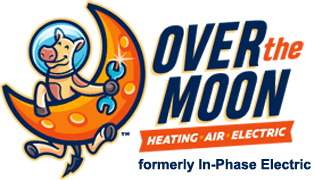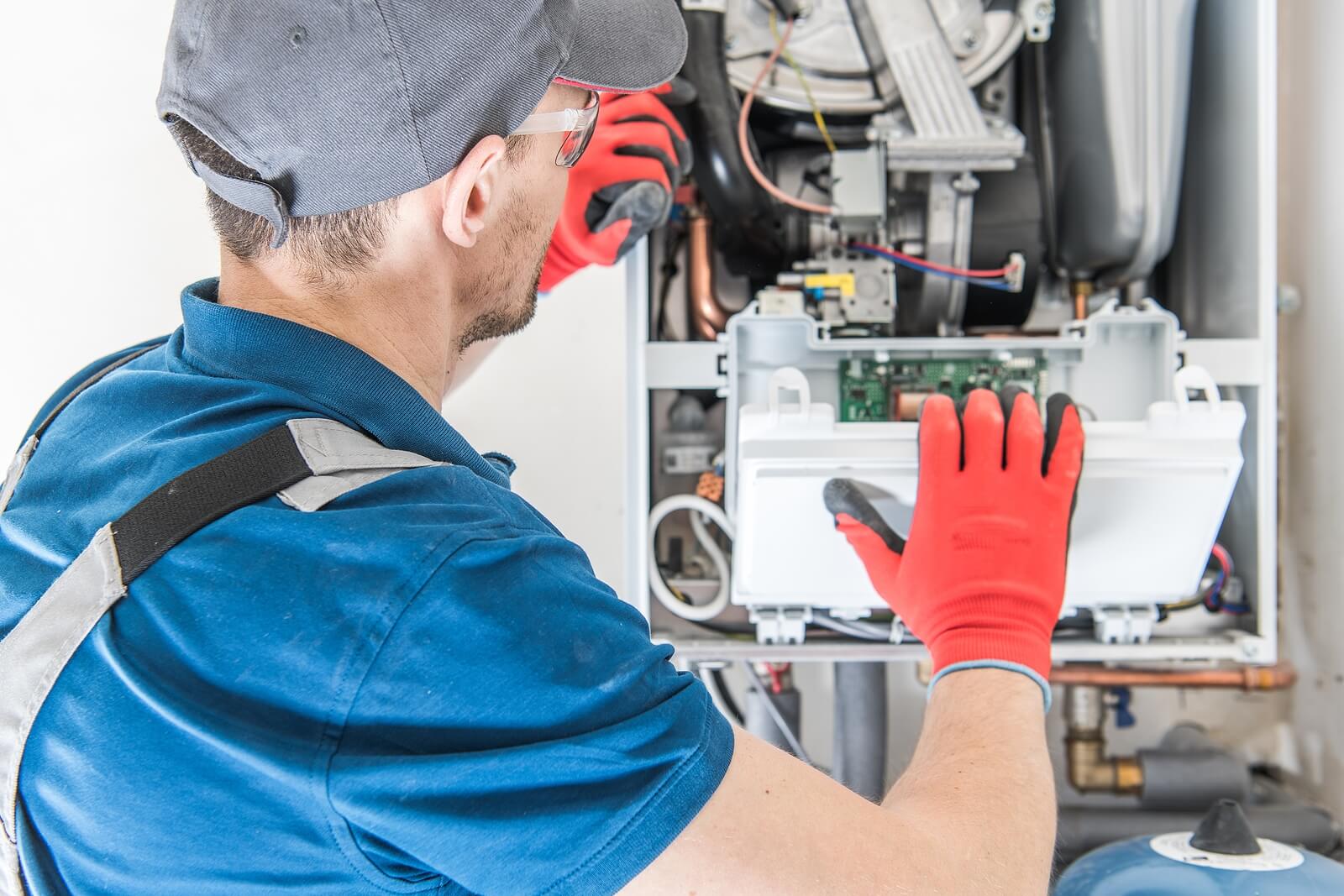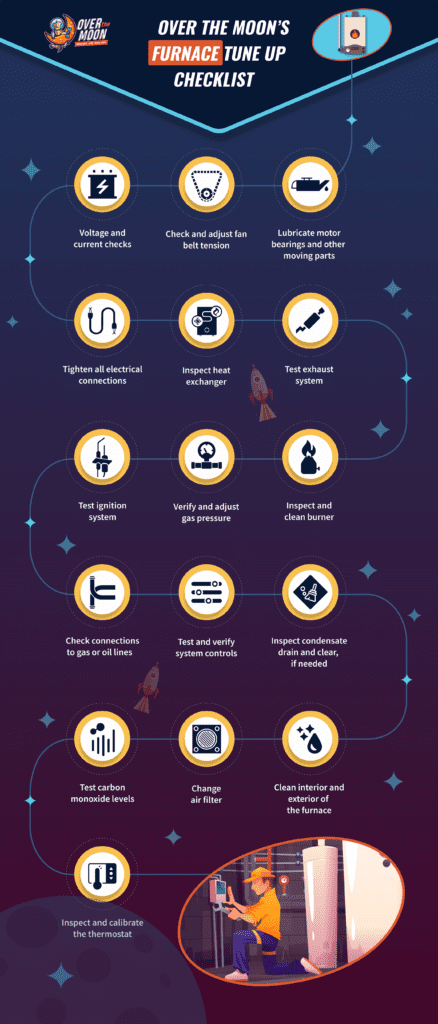A furnace tune-up can ensure your heat stays on all winter long. It can increase energy efficiency and therefore contribute to lower energy bills, improve heater performance, and prevent breakdowns. Heating system malfunctions can jeopardize air quality and safety. With a full tune-up, these concerns are eliminated and your furnace may last longer.
What’s Included in a Furnace Tune-Up?
Here is a checklist of what a heating technician should do during an annual tune-up:
- Lubricate motors, fans, bearings, and other moving parts to reduce friction and wear.
- Clean air filters and blower components to ensure indoor air remains clean.
- Inspect the combustion chamber for heating and safety issues.
- Check for blockages or accumulation of debris in the flue duct or pipe.
- Check combustion air openings for blockages and remove them if needed.
- Measure gas pressure and burner combustion to ensure all levels are within acceptable safety parameters.
- Measure the motor’s current and voltage to check its efficiency.
- Check for soot, corrosion, or cracks in the heat exchanger.
- Perform a carbon monoxide leak test.
- Inspect and tighten (if necessary) all electrical connections and wiring.
- Test the controls to ensure proper cycling.
- Test safety and limit switches.
- Perform tests to ensure gas valves and oil pumps are operating properly.
- Calibrate, repair, or replace the thermostat if necessary.
- Inspect belts for cracks, alignment issues, and the slightest hint of damage.
- Check the pilot light color and make adjustments as needed.
- Clean the vestibule (area between the outer door and inner furnace components).
- Inspect the gas line for leaks, which can be a huge fire hazard.
- Check for noise and vibration that can point to internal problems.
- Look for clogs and loose joints in ductwork, and seal any air leaks.
- Test the furnace to verify it is working and the tune-up was successful.
- Draft a report explaining the work performed, issues found, what was fixed, and recommendations for usage, repairs, and upgrades.
Why It’s important to Have a Furnace Tune-Up Checklist
A checklist ensures that a maintenance technician can address your:
- Safety: Damage to heat exchangers, igniters, and other combustion elements can lead to safety hazards. Without a regular inspection/tune-up, carbon monoxide could leak into your home.
- Comfort: A well-tuned furnace runs more reliably and is less likely to develop performance issues, so you can expect more predictable heating.
- Expenses: The furnace can operate more efficiently and last longer (by possibly several more years), saving you money in the short term and over the long run.
Are Tune-Ups Required Every Year?
Many homeowners overlook the idea of a furnace tune-up checklist. However, an annual tune-up is a good idea since wear and tear occur with normal operation. Daily stress on furnace components affects performance and ultimately reliability and efficiency. Although the unit seemed fine last year, there may be hidden issues that might surface this season.
DIY Furnace Maintenance Tips
Before you turn on the furnace for the heating season, make sure you:
- Change the Air Filter: Get a high-quality filter, check it monthly, and replace whenever there’s visible dirt and debris.
- Reverse Your Ceiling Fan: Setting the fan to rotate clockwise pulls cool air up and pushes warm air down; you can lower the thermostat and be just as comfortable.
- Check Your Smoke/CO Detector Batteries: These should be changed every year, and make sure smoke/CO detectors are installed on every floor and close to sleeping areas.
Schedule Your Furnace Tune-Up Today
Over the Moon specializes in thoroughly checking heating systems in and around Brookfield, Wisconsin. Our furnace technicians provide a comprehensive annual inspection and tune-up to ensure your furnace is operating efficiently and safely. Schedule your furnace tune-up online or by calling 262-320-3822 today.


